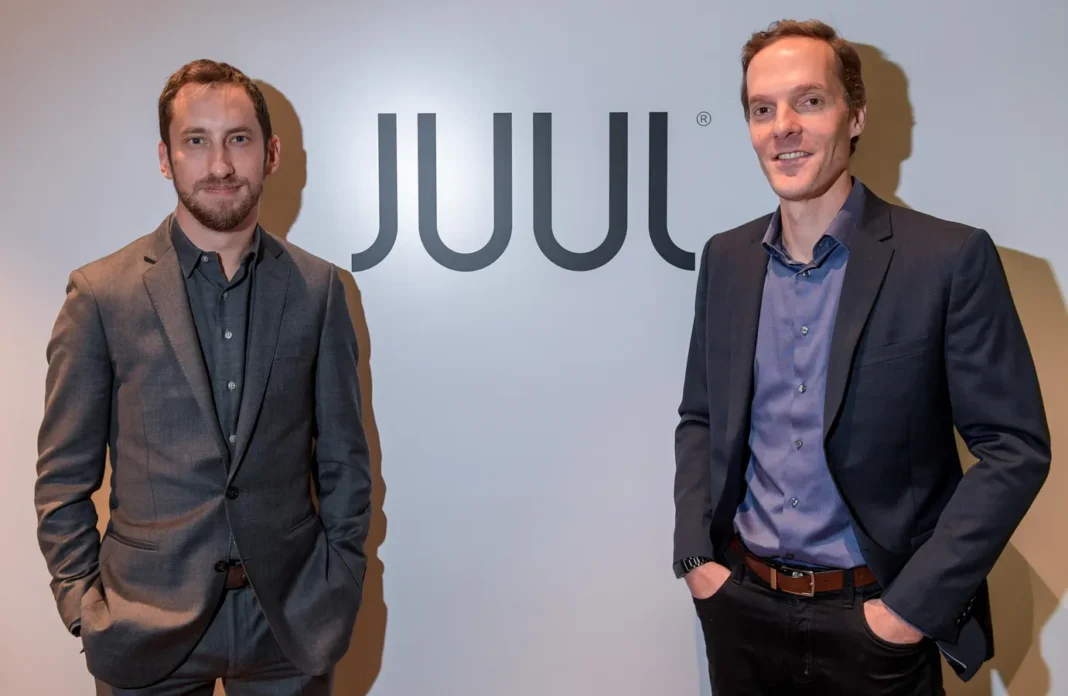Juul Labs : The Fall of a Vaping Titan Juul Labs was once the leader in the U.S. market for nicotine vapes. Now, the company is facing lawsuits, regulatory changes, and losses. How did the vaping giant fall from grace when many pointed fingers at it for its alleged marketing tactics targeting teens?
Key Details Table:
| Detail | Description |
|---|---|
| Market Value (Q2, 2020) | $500 Million |
| Lawsuit Settlement | 440 Million Dollars |
| States involved in investigations | 33 |
| The remaining states with lawsuits | 9 |
| Altria Investments (2022) | 13 Million Dollars |
| Juul’s value loss (2022). | 95% |
| Altria’s stake in Juul | 35% |
| FDA’s Concern | Juul’s Nicotine Products Contain Harmful Chemicals |
| Juul’s market share (2018) | Over 70% |
| Juul’s Revenue 2018 | Over $1 Billion in Sales |
What is the impact of a lawsuit on Juul’s market value?
Juul Labs found itself in the middle of a major lawsuit after a two-year investigation by 33 U.S. States. What was the central argument? The company strategically targeted teenagers with its high-nicotine products. Sources claim that this alleged targeting was one of the factors contributing to the increase in teenage vaping. Juul Labs received a $440 million fine to settle the lawsuit. This nearly wiped out its market worth, which was $450 million at the end of 2022’s second quarter.
What role did Altria play in Juul’s journey?
Altria, the world’s largest cigarette manufacturer, invested $13 million in Juul Labs by 2022. As regulators attempted to ban Juul e-cigarettes in 2022, Juul’s value plummeted 95%. Altria’s investment dropped by $1.1 billion and reached a paltry $450 million at the end of Q2.
Altria of Richmond, Virginia and its 35% stake in Juul expressed their intention to continue the investment. Even further, they stated that they would not sell any products that competed with Juul. What was their reasoning? Altria still values Juul.
Why did FDA seek to ban Juul’s E-Cigarettes
The Food and Drug Administration made a surprising announcement in June 2022 about their plans to ban small cartridge e-cigarettes like Juul. They were concerned that Juul hadn’t disclosed all the chemicals in its nicotine products, which could potentially pose a threat. They wanted more disclosure about possible health risks from these chemicals Juul used in its product line. Juul spent a lot of resources gathering data over the years to support their product applications.
Juul was given a temporary reprieve when a federal judge ruled that FDA’s ban would not be effective immediately, and Juul could continue to sell its products. This scenario is part of the FDA’s review of ecigarettes. It evaluates their claims about helping smokers reduce or quit their habit.
What is the current landscape for Juul Labs?
Juul Labs, once a dominant player with revenues exceeding $1 billion and over 70% of the U.S. vape nicotine market, now appears to be in doubt. The company has settled lawsuits with 33 states. However, nine other states are preparing their own separate lawsuits. Add to that the hundreds of lawsuits brought by teenagers and others who allege to be addicted to Juul products. Juul Labs will have to navigate through many challenges in the coming months and years.
Juul Labs is a great example of how quickly fortunes can shift in the world of business, especially when regulatory agencies, public opinion and legal challenges all come together.















